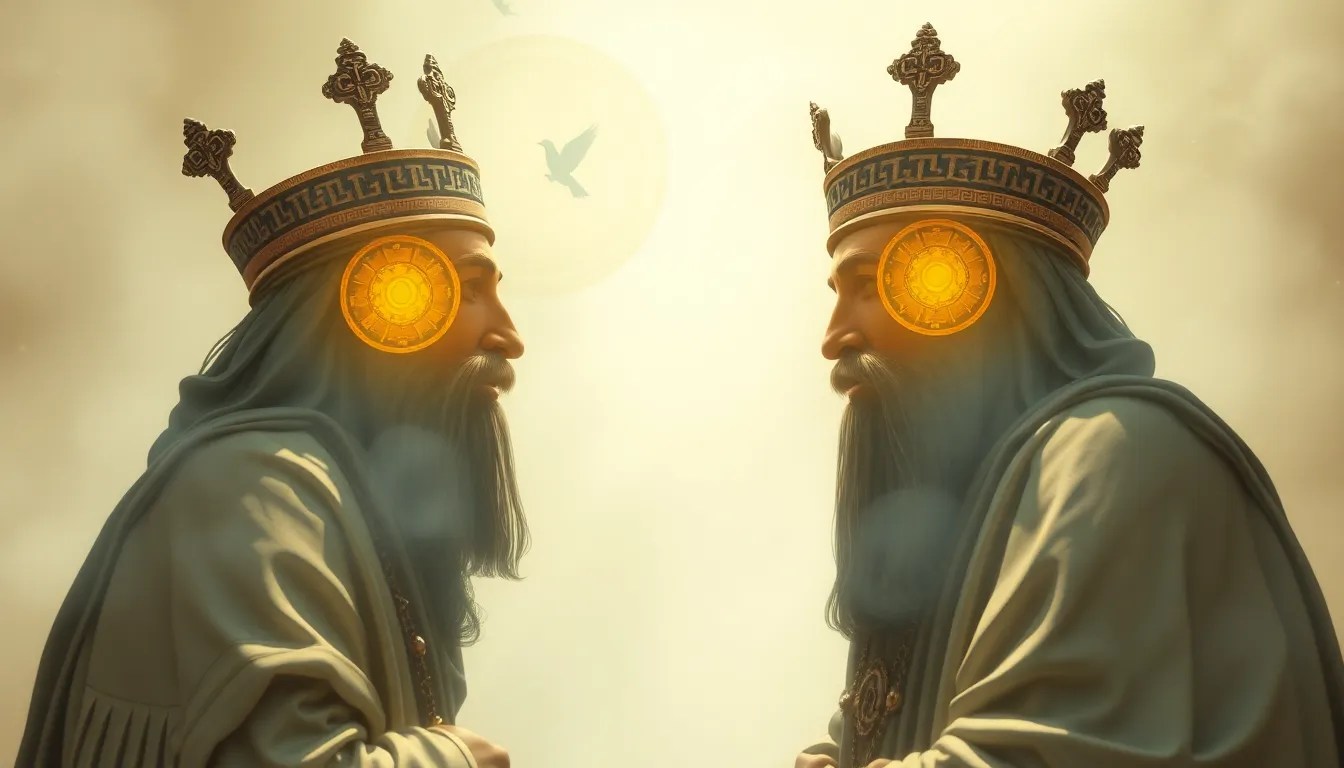The Prophetic Insights of Babylonian Priests
I. Introduction
Babylonian mythology and religion are rich tapestries woven from the beliefs, practices, and narratives of one of the world’s earliest civilizations. The Babylonians revered a pantheon of deities, each governing various aspects of life and nature. Within this intricate belief system, priests held a pivotal role, acting as intermediaries between the divine and the mortal. This article explores the prophetic insights of Babylonian priests, illuminating their significance in both religious and societal contexts.
II. The Role of Priests in Babylonian Society
Priests were central figures in Babylonian society, serving crucial functions that extended beyond mere religious duties. Their roles included:
- Intermediaries between gods and people: Priests facilitated communication with the divine, performing rituals and sacrifices to appease the gods.
- Advisors to kings and leaders: They provided counsel based on divine insights, influencing political decisions and governance.
- Keepers of sacred knowledge: Priests were responsible for maintaining religious texts, rituals, and traditions.
The priesthood had a hierarchical structure, with high priests overseeing lower-ranking priests and temple workers. Daily rituals included offerings, prayers, and festivals that reinforced the connection between the people and their gods.
III. Understanding Prophecy in Babylonian Culture
Prophecy held a significant place in Babylonian culture, defined as a message believed to be conveyed by the gods. It served as a means of understanding divine will and foreseeing future events. Key types of prophecies included:
- Divination: The practice of seeking knowledge of the future through omens, signs, and rituals.
- Omens: Natural phenomena or events interpreted as messages from the gods, often recorded in detailed texts.
- Dreams: Considered a vital source of prophetic insight, with priests trained to interpret their meanings.
The connection between prophecy and divine will was deeply ingrained in Babylonian thought, as the outcomes of events were often seen as direct reflections of the gods’ intentions.
IV. Methods of Divination Used by Babylonian Priests
Babylonian priests employed various methods of divination to ascertain the will of the gods and deliver prophetic insights:
- Examination of the liver: Priests would inspect the liver of sacrificed animals, particularly sheep, as it was believed to contain signs from the gods.
- Interpretation of celestial phenomena: The movement of stars and planets was meticulously recorded, with specific alignments deemed significant for prophecy.
- Use of dreams and visions: Dreams were interpreted based on established guidelines, often resulting in detailed accounts of future events or divine messages.
V. Notable Prophetic Texts and Their Interpretations
Ancient Babylon produced a wealth of prophetic texts that have survived through history. Some key texts include:
- The Enuma Elish: This creation myth contains elements of prophecy concerning the rise of Babylon and its patron god, Marduk.
- The Epic of Gilgamesh: While not exclusively prophetic, this epic includes prophetic dreams and insights that guide the protagonist on his journey.
- Omen texts: These texts catalog various omens and their interpretations, providing a systematic approach to understanding divine messages.
The analysis of famous prophecies, such as the rise and fall of empires, showcases the power and influence of prophetic insights in shaping historical narratives. Written records ensured the preservation of these insights, allowing future generations to learn from the past.
VI. Case Studies of Famous Babylonian Prophets
Several renowned Babylonian prophets significantly impacted their society and politics:
- Daniel: Though primarily known from biblical texts, Daniel’s prophetic insights regarding the Babylonian empire and its leaders are noteworthy.
- Nabonidus: The last king of Babylon, who was also a priest, engaged in prophetic practices to seek favor from the gods during his reign.
- Astrologers: Various unnamed astrologers and diviners played crucial roles in advising kings through their interpretations of celestial events.
The historical context of their prophecies often reflects the socio-political climate, revealing how prophetic insights were intertwined with the fate of the Babylonian state.
VII. The Legacy of Babylonian Prophetic Practices
The prophetic practices of Babylonian priests have left a lasting legacy, influencing subsequent civilizations and cultures. Their methods and beliefs can be seen in:
- Later Mesopotamian cultures: The practices were adopted and adapted by successive empires, including the Assyrians and Persians.
- Religious traditions: Elements of Babylonian prophecy found their way into Jewish, Christian, and Islamic traditions.
- Modern contexts: The fascination with prophecy continues today, with many drawing parallels between ancient practices and contemporary spiritual beliefs.
The relevance of Babylonian prophecy endures as scholars and enthusiasts alike continue to explore its implications in understanding human nature and the quest for knowledge about the future.
VIII. Conclusion
In summary, the prophetic insights of Babylonian priests reveal a complex interplay between religion, society, and politics in ancient Mesopotamia. Their roles as intermediaries and interpreters of divine will highlight the importance of their contributions to Babylonian life. The enduring impact of Babylonian mythology and its prophetic traditions invites further exploration, encouraging contemporary readers to delve deeper into this fascinating aspect of human history.



